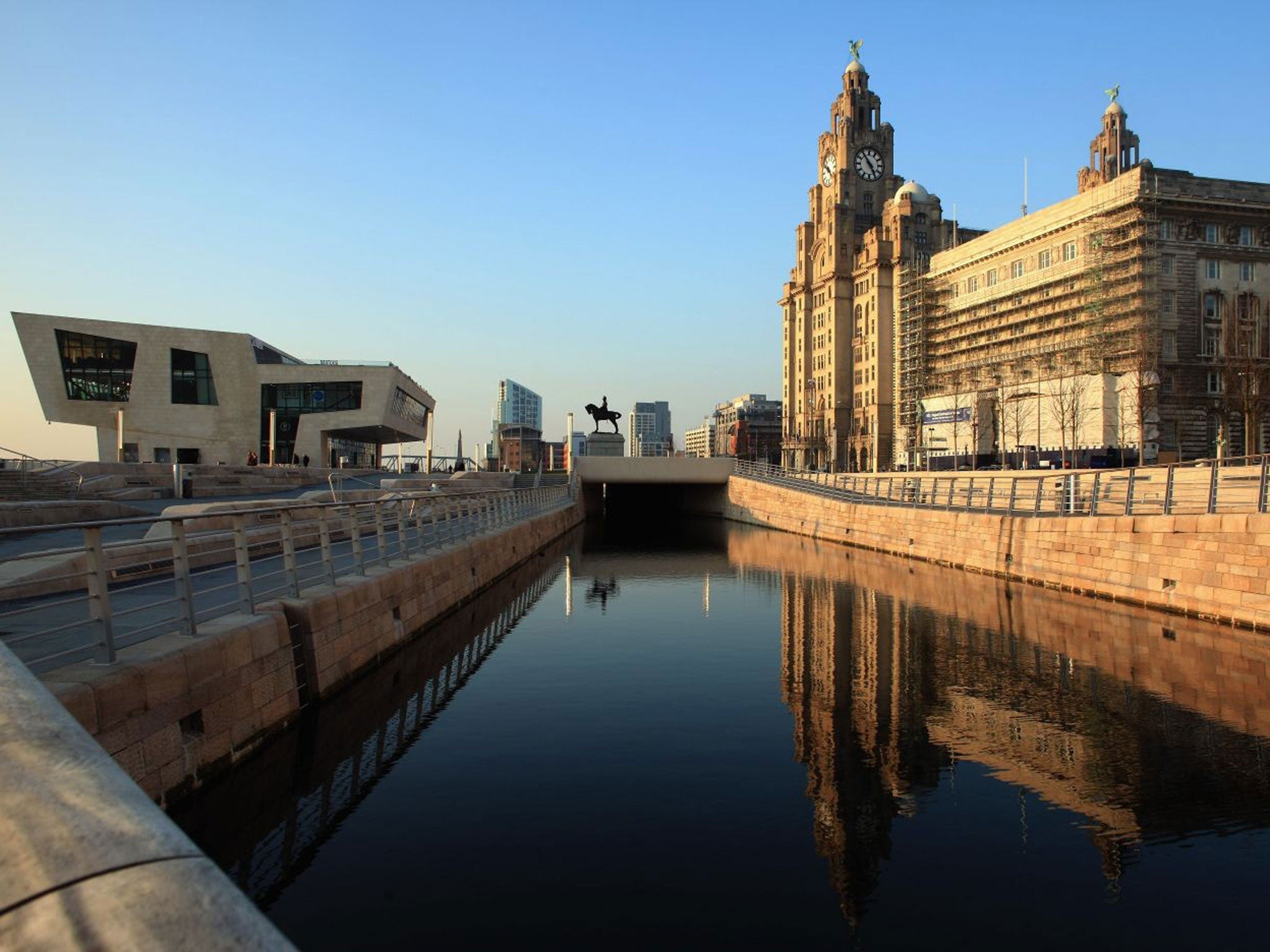Stephen Bayley: Why a visit to Liverpool, city of nostalgia, is like coming home
Something to Declare

Your support helps us to tell the story
From reproductive rights to climate change to Big Tech, The Independent is on the ground when the story is developing. Whether it's investigating the financials of Elon Musk's pro-Trump PAC or producing our latest documentary, 'The A Word', which shines a light on the American women fighting for reproductive rights, we know how important it is to parse out the facts from the messaging.
At such a critical moment in US history, we need reporters on the ground. Your donation allows us to keep sending journalists to speak to both sides of the story.
The Independent is trusted by Americans across the entire political spectrum. And unlike many other quality news outlets, we choose not to lock Americans out of our reporting and analysis with paywalls. We believe quality journalism should be available to everyone, paid for by those who can afford it.
Your support makes all the difference.Coming home is a part of travel. But coming home can be a lot like going away. This is what I am thinking on the train to Liverpool, the most melancholic city on Earth. And, in its ruined way, one of the most magnificent.
The train enters that sublime Piranesian sandstone canyon on the approach to Lime Street Station, surely the strangest entrance to any great city. And suddenly we are in the station where my grandmother's apocalyptic hissing steam trains used to terrify me as a child.
Carson McCullers said: "I go home often to refresh my sense of outrage." Maybe I don't like Liverpool, but it fascinates, annoys and moves me. Great love affairs are not necessarily affectionate.
My curious relationship with Liverpool reveals something of the city's own perplexing character. In fact, I don't revisit Liverpool often, but it often revisits me. Impressions made on the young child are ineradicable. The heartbreaking beauty of the waterfront, so full of historic promise and tragedy. The spoiled beauty of the perfect Georgian townscape. The epic docks.
Liverpool taught me the psychology of place. The city is, geographically, the end of the road: the only through traffic goes overseas. So, at once, Liverpool has the sense of a quiet backwater incongruously combined with the restless feel and shiftiness of a great port.
Bent on self-invention, I decided to acquire some of Liverpool's strong identity. There is a general rule in the theory of self-invention: the appropriation of a locale as an aid to character, a town or a city as your personal metaphor. Tell me where you come from and I will tell you what you are, or pretend to be.
So, I pretend to be Liverpudlian. It may not be identity theft, but it's certainly an identity loan because I was born somewhere else and am essentially a Londoner. And this breezily negotiated loan says something about the tenacious hold Liverpool has over people who are only, as I am, marginally its own.
Bruce Chatwin was another example. He chose not to invest much effort in identifying with his native Birmingham. Chatwin was not looking for heroic industrial canals, a Brutalist shopping centre, urban expressways, first-class cricket or the Austin A40 production line. Instead, Chatwin plotted his escape from suburbia to invent himself as an exotic travelling aesthete.
I am writing notes now in Alma de Cuba, a restaurant inserted with impressive blasphemy into a fine old Neo-Classical Catholic church. I used to take moody photographs hereabouts when I was a trainee Existentialist teenager in a black roll-neck.
Nostalgia was originally defined as a psychosis. Liverpool seems to inspire it. Paul Simon, in an ecstasy of yearning for America, wrote "Homeward Bound" on Widnes station with the smells of the chemical factories in the air.
Almost the last photograph of John Lennon shows him in New York wearing his old school tie, 23 years after he was expelled and left Liverpool.
In Liverpool I find ambition and despair, style and slovenliness, achievement and disgrace. That's why coming home is always so troubling, a mixture of delight and disappointment.
Join our commenting forum
Join thought-provoking conversations, follow other Independent readers and see their replies
Comments